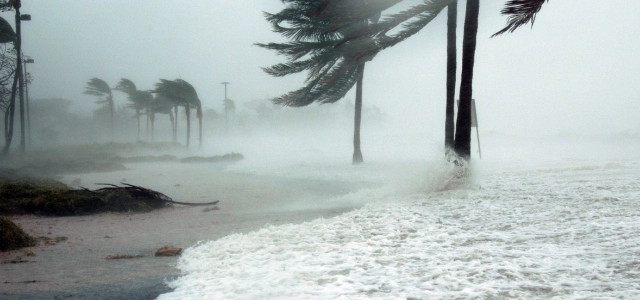
This year is predicted to be an active hurricane season in Florida and the southeastern United States. If you own property in Florida and other hurricane-prone areas, having the right hurricane insurance in place to protect your assets is critical. But your preparation does not end there. There are steps you should take before a tropical storm or hurricane form to protect your property and ensure that you are prepared to present a compelling claim in the wake of a hurricane.
1. Understand your insurance policy coverages.
Whether you own a business or a residence, it is critical to make sure you have the right types and limits of insurance coverage in place before a hurricane. Most insurance companies will not bind new insurance on property located in the cone of a potential hurricane.
It is important to have adequate wind and flood coverage, as hurricanes often result in losses caused by a combination of these two. Review policies to ensure they provide sufficient coverage for buildings, contents, loss of use, and law and ordinance (the increased cost of repairing and rebuilding in compliance with building codes). A note of caution: flood insurance policies issued through the National Flood Insurance Program provide limited coverage below the lowest elevated floor depending on the flood zone and date of construction. By way of example, following Hurricane Ian, many homeowners on Sanibel Island who had enclosed, finished, and furnished the ground floors of their elevated homes learned the hard lesson that their flood insurance policies provided little to no coverage for furnishings or finishes in those areas.
Businesses, whether large commercial enterprises or small Airbnb rental properties, should ensure they have adequate coverage for business interruption losses, including loss of income, lost rents, and extra expenses. Businesses should also consider obtaining coverage for loss of power and civil authority, as business interruption losses may result from a lack of power and access to the insured property following a hurricane. Condominium owners should ensure they have adequate loss assessment coverage, which covers individual assessments for hurricane damage to common areas.
2. Document the physical condition of your property and the financial condition of your business.
Take videos and/or photographs of your buildings and contents prior to a hurricane. Collect maintenance records. These can be useful to show that you maintained the property in good condition prior to the hurricane. Gather receipts showing the value of your personal property. Businesses should also back up profit and loss statements and other income and expense information and store these records electronically in the cloud or in a physical location that is dry, accessible, and away from the hurricane’s path. These records will be important evidence in valuing your losses.
3. Create a Hurricane Plan.
In addition to making sure you have adequate water, food, batteries, fuel, tarps, and other supplies, you should have a plan you can execute after a hurricane in the event your property sustains damage. Create a contact list with your insurance agent’s contact information and your insurance company’s claim reporting information. Maintain electronic and physical copies of your insurance policies. Interview mitigation and restoration companies, contractors, and others, who may be able to assist in the wake of a hurricane. When you find individuals or companies you like, add them to your hurricane contact list. Businesses may wish to consider entering into contracts with companies that can assist in post-hurricane cleanup efforts. Doing so before a storm may allow businesses to negotiate better rates and priority service.
Pre-hurricane preparation is a key factor in post-hurricane insurance recovery, but there are also steps you should take after a storm. Read Eight Steps to Recovering Under Your Hurricane Insurance Policy.
- Shareholder
Meghan C. Moore serves on Flaster Greenberg’s Board of Directors and is a member of the Women’s Advisory Group. With nearly two decades of experience in insurance counseling and recovery and an unwavering commitment to ...


